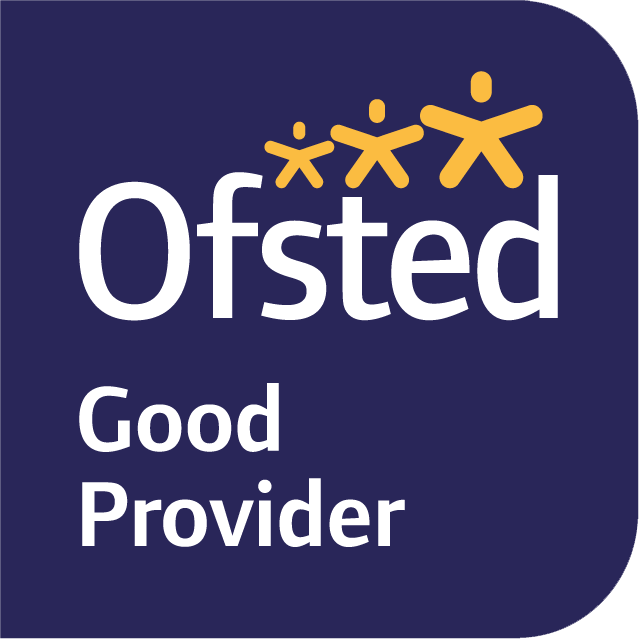Safeguarding
Introduction
Here at Queen’s Park High School, we fully recognise and readily accept that we are entrusted with both a moral and statutory responsibility to safeguard and promote the welfare of all our students.
We strive to always provide a safe, welcoming environment where our students are both respected and valued. All staff are trained in identifying signs of neglect and abuse and follow a clear and robust reporting system to ensure that concerns are recorded in a system designed to support security of data and aid evaluation from the safeguarding team.
If you have any concerns about a young person in our care, please do not hesitate to contact us.
| Designated Lead for Safeguarding and Child Protection: | Mrs Z Williams |
| Deputy Lead for Safeguarding and Child Protection: | Mr T Kearns |
Telephone: 01244 257088
Email: safeguarding@qphs.co.uk
Our Approach
At Queen’s Park High School, we strive to keep our students safe by:
- Maintaining up to date child protection policy
- Having other safeguarding policies
- Assigning safeguarding responsibility to a nominated governor Reporting on our safeguarding performance through the Student Governor’s committee
- Checking the suitability of all our staff to work with children
- Encouraging pupils to tell us if something is wrong
- Adhering to health and safety regulations
- Training all our staff to recognise and respond to child welfare concerns
- Appointing a designated person who has additional training in child protection
- Appointing a Safeguarding Deputy lead to aid in school support and supervision
- Working in partnership with parents and carers
- Sharing information with appropriate agencies if we have concerns
- Managing and supporting our staff team
- Being watchful at all times
Contacting the authorities
If you are in any way concerned about the safety or welfare of your child, or a child you may know, you should act without delay.
Many people can often be afraid that their suspicions might be wrong, or that they will be interfering unnecessarily. It is important that if you have any suspicions that you don’t succumb to these fears so, if you wish, you can telephone for advice without identifying the child.
If the subsequent conversation confirms that you are right to be concerned, you can then give the child’s details.
You will be asked for your name and address too, but the agencies will also take anonymous calls, so if you really do not want to say who you are, you do not have to.
Remember, it is always better to be safe than sorry.
| Integrated Access and Referral Team (I-ART) | Tel: 0300 123 7047 |
| Out-of-hours Duty Team | Tel: 01244 977 277 |
| Police | Tel: 0845 458 0000 (or 999 in an emergency) |
| Further information about Cheshire West Local Safeguarding Children Board can be found at: | website |
| NSPCC child protection helpline | Tel: 0808 800 5000 |
Child Abuse and What to Look For
No parent wants to think about the possibility of their child becoming a victim of abuse, and most children are never abused. Even so, it is important for parents to be aware of the possibility and to know that help is available if the unthinkable does happen.
Although there is always a lot of media focus on ‘stranger danger’, the abduction of children is rare and the threat from strangers is quite small. You should still ensure that your child knows the rules about keeping safe when they are out alone. Most children know their abusers. They may be family members or friends of family, someone who works with the child or someone who lives in the community.
There are four types of abuse: physical, emotional and sexual abuse, and neglect.
There are many signs, or indicators that a child might be suffering abuse. There may be injuries, but it is more likely that you will notice some change in your child’s behaviour.
If you notice anything that concerns you, talk to your child to see if you can find out what is happening. Remember that, if your child is being harmed, she or he may be too frightened to tell you. If your child becomes distressed or you are not happy with the explanations, you could talk to an adult you trust or call a helpline or children’s social care services. Our designated person at school will also try to help.
Some signs to look for are:
- bruises or other injuries
- a change in behaviour - from quiet to loud, or from happy-go-lucky to withdrawn
- pain or discomfort
- fear of a particular person, or a reluctance to be alone with them
- secrecy around a relationship with a particular person
- reluctance to discuss where they go, or who they are with
- sexual talk or knowledge beyond their years
- being watchful, or always on edge
- losing interest in their appearance, hobbies or family life
- alcohol or drug taking
- having money and refusing to say where it has come from
- wetting the bed
- becoming clingy
You will find more useful information in the school’s child protection policy.
If you believe a child is being bullied
We define bullying as behaviour that is deliberate, repeated more than once and is designed to be hurtful. Bullies tend to pick on children who they think are unable to defend themselves. Bullying is not only about hitting or fighting. It also includes name calling, threats, taking belongings, intimidating and making unkind or abusive remarks.
Children may try to hide the fact they are being bullied because they are afraid or ashamed but you might notice some signs, for example your child might:
- change their behaviour
- come home with torn clothing
- ‘lose’ their dinner money, or ask for extra money
- try to avoid going to school
- complain regularly of headaches or stomach aches
- have unexplained cuts and bruises
- play truant
We have anti-bullying procedures that help us to identify and deal with any case of bullying in school, but bullying does not only take place in school, it can also happen in the home or in the community.
If you believe it is happening in School, then please contact your child’s Form Tutor or Head of House.
Bullying can be serious and cause a lot of distress. If your child tells you that they are being bullied in school, please urge them to tell us. They may not have told us themselves because they are afraid that the bully will find out and the bullying will get worse. Try to help them to understand that the bullying will not stop while it is kept secret. As soon as we know it is happening, we will follow our anti-bullying procedures to try to stop it.
It is also distressing to suspect that your child might be bullying other children. Our anti-bullying procedures include trying to support children who bully to change their behaviour, so please talk to us if you think your child needs some help.
What we will do
If we are concerned that your child may be at risk of abuse or neglect we must follow the procedures in our child protection policy. You can look at the policy in school, on our website or receive a copy to take home. Please just ask at reception.
The procedures have been written to protect all pupils. They comply with our statutory responsibilities and are designed to support pupils, families and staff. The procedures are based on the principle that the welfare of the child is the most important consideration.
In almost all circumstances, we will talk to you about our concerns and we will also tell you if we feel we must refer our concerns to children’s social care. We will ask your consent to make a referral, but in some circumstances we may need to make the referral against your wishes. We will only do this if we genuinely believe that this is the best way to protect your child, and the fact that you did not consent to the referral will be recorded.
If we think that talking to you first might in some way increase the risk to your child, we will report our concerns to children’s social care and take advice from them. We will normally tell you that a referral is being made and we will record the reasons why we decided to follow this course of action.
All child protection records are kept separate from your child’s general school file. Records are stored in a locked cabinet or drawer, and if stored on computer they are password-protected. The only staff who have access to the records are those who need to know about the concerns to protect and support your child.
You can ask to see what information is held on your child, and we will normally agree to this, but if we are unsure we will seek advice from the local authority designated officer or children’s social care first.
Child protection is a very sensitive issue and it raises many questions and a range of strong emotions. We will do everything we can support our pupils and you can be assured that any action we take will be in the best interests of your child.
E-Safety: Internet & Mobile Safety
Mobile phones and computers are now a key part of everyday life for many children and young people. So many children are on twitter, Facebook and other social media platforms.
Used correctly, they are an exciting source of communication, fun and education but used incorrectly, or in the wrong hands they can be both threatening and dangerous.
The risks can include:
- cyber-bullying, where hurtful texts or emails are sent to children
- children accidentally or deliberately accessing violent or sexually explicit websites, either on a computer or a mobile phone
- paedophiles talking to children by mobile phone or online and enticing them to engage in sexual conversations, photographs, video or actual meetings
Whilst we believe that such items are important learning tools when used effectively and correctly, both parents and students alike also need to learn how to manage the risks.
Here are some tips to help you to manage the risks:
- Try to put the computer in a family room where it will be easier for you to supervise your child’s online activity
- Ensure that your child knows they should never give their full name, address and contact details to people they chat to on the internet
- Gently explain that some people they talk to on the internet may not be who they say they are and might say or do unpleasant or hurtful things
- Investigate whether the ‘parental controls’ available from some internet service providers will be helpful
- Consider installing software that can filter out inappropriate material
- Talk to your child about their internet use. Ask them which sites they enjoy most, and why. Show you are interested, while understanding their need for some privacy
- Impress on your child that they can talk to you if they are worried about something that has happened during their internet use
- Make it very clear that your child must never arrange to meet someone they have chatted to online without your permission. Their new ‘friend’ might well be a local young person of similar age, but they might not
For further advice and information visit:
- Internet Watch Foundation: www.iwf.org.uk
- Child Exploitation and Online Protection Centre: www.ceop.gov.uk
- Stop It Now! www.stopitnow.org.uk
You may be alerted to question your child’s online activity if they are:
- spending more and more time on the internet
- being secretive - reluctant to talk about their internet activity, closing the screen page when you are close by
- spending less time with the family, or giving up previous hobbies and interests
- losing interest in their schoolwork, regularly failing to complete homework
- starting to talk about ‘new friends’ that you have not met and who do not visit your home
- overly possessive of their mobile phone or computer - perhaps overreacting if someone picks it up or asks to borrow it
- showing fear or discomfort when their phone rings, or quickly turning it off without answering
- undergoing a change in personality that you cannot attribute to any obvious cause
Remember that none of these signs prove that your child is at risk in any way, but if you do notice anything that confuses or worries you try talking things over with them.
They may well tell you to stop fussing. They may be laid back. In any case, think about their demeanour and attitude as well as what they say. If you are still concerned contact one of the helping agencies.
Useful Contacts
| Digizen - Advice on all aspects of social networking sites, cyber bullying and e-safety for parents and children | website |
| Family Lives - A national charity offering help and support for parents and families | website |
| Childline - 0800 1111 - can be phoned in strictest confidence | website |
| Kidscape - advice for keeping children safe | website |
| Anti-Bullying Alliance | website |
| Child and Adolescent Mental Health Service (CAMHS) Out of hours Advice Line | 01244 397644 |
| My Mind - NHS website, run by CWP CAMHS developed for everyone interested in the mental health and well-being of children and young people. | website |
The Child and Adolescent Mental Health Service (CAMHS) has launched a new out-of-hours advice line for people living in the Cheshire and Wirral area. The advice line is open to everyone (children, young people, relatives, teachers, other professionals) and allows people to talk to a mental health professional if they are concerned or would like advice about a child or young person’s mental health.
The advice line runs from 5pm-10pm (Monday-Friday) and 12pm – 8pm (Saturday and Sunday).
Advice Line Number is 01244 397644









